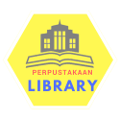The establishment of the Faculty of Social and Political Sciences was dated back to 1962, when Mulawarman University used to be named Perguruan Tinggi Mulawarman (Higher Educational Institution of Mulawarman), as stipulated in the East Kalimantan Governor's Letter of Decision No. 15/PPK/62. Later, it was renamed Universitas Kalimantan Timur (Unikat) or The University of East Kalimantan, and then -- through President's Letter of Decision dated 23 April 1963 -- Mulawarman University. When being named Perguruan Tinggi Mulawarman, there was only one faculty: Fakultas Ketatanegaraan dan Ketataniagaan (the Faculty of Public Administration and Business Administration). By 1966, this faculty was split into the Faculty of Social and Political Sciences and the Faculty of Economics.
Number of study programs at the Faculty of Social and Political Sciences had increased significantly since more than a decade ago. Prior to 2000, there were only three undergraduate degree programs (Public Administration, Government, Sosiatri). The year 2000 is a milestone in such an increase, and currently eleven study programs in three academic level: one of them in undergraduate diploma level (Office Administration), nine in undergraduate level (Public Administration, Government, Sosiatri, International Relations, Communication, Business Administration, Psychology, Sociology, Applied Government) and one in postgraduate study level (Public Administration).
The Faculty of Social and Political Sciences Mulawarman University provides wide-ranging facilities to support its teaching-learning processes. They scatter both within the campus and outside the main campus. Some of them are representative office buildings, representative lecture rooms, seminar and conference rooms, wide space parking lots, convenient campus environment, hot spots, online course enrollment, laboratories, digital library, sport facilities, and other facilities.
The Faculty is chaired by a Dean. The Dean is assisted by four Vice Deans, namely 1st Vice Dean (educational affairs), 2nd Vice Dean (staff and administrative affairs), 3rd Vice Dean (student affairs), and 4th Vice Dean (planning, development, and cooperation). In the academic affairs, the Dean and the 1st Vice Dean subordinate Departments, spearheaded by their respective Head of Department. The Department subordinates Study Programs respectively chaired by Head of Study Program. In the administrative affairs, the Dean subordinates the Faculty Administration Office headed by an Administrative Officer. The Administrative Officer subordinates administrative sections such as the academic section, student section, staff section, procurement section, etc.
The role of lecturers and staff are of importance in teaching-learning process in the Faculty of Social and Political Sciences. Until May 2012, total lecturers numbered 92. Compared to number of students totaling 5336 persons, the ratio of lecturers to students is 1:58. As far as their educational levels are concerned, 16,30% of them hold doctoral degrees, 78, 26% master degree, and the remaining 5,44% undergraduate degree. Meanwhile, number of Fisip Unmul staff reach a figure of 109, where 66,97% of them are male and 33,07 % female. Of this staff figure, 38,53% of them have been appointed and given status of civil servants. The remaining ones are not yet.
Intentions among high school graduates to study social and political sciences increase significantly since the past few years. This can be observed from a significant increase of total number of Fisip Unmul students. Prior to 2000, they were numbered less than 700 students. By 2007, the figure reached to 4585, where 1296 student were admitted from national selection and 3288 students were from local selection. This year (2012), total number of students are 5.732 persons. Of this, 5.336 students (92,58%) enrolled in this academic year while the remaining 396 students (7,42%) unenrolled. Such figure accounted for undergraduate diploma (D3) and undergraduate (S1) students. It does not include postgraduate students.
As the Facultu has been established since 1962, it has produced thousands of faculty graduates. Total number of alumni of the Faculty of Social and Political Sciences, Mulawarman University, during a period of 1962 to 2011 are 6154 persons (excluding the unavailable data). They are currently living for good across the Indonesian archipelago as well as overseas; however, most of them are residing in East Kalimantan. Their occupation are civil servants, politicians, businesspersons, NGO activists, self-employed, etc.
The Faculty of Social and Political Sciences encourages its study programs to make them accessible on the internet so that they can promote themselves creatively and provide academic services to their students in a more efficient way. Another reason is for accreditation purposes. Some of them are Applied Government (www.pin.or.id), Prograduate Program (http://mian.fisip.unmul.ac.id), Government Study Program (http://ip.fisip-unmul.org), Psychology (http://www.psikologi-unmul.co.cc), and International Relations (to be informed -- work on progress).
The campus of the Faculty of Social and Political Sciences Mulawarman university is situated in the downtown of Samarinda, East Kalimantan, Indonesia. The Faculty's address and contact information are as follows: The Faculty of Social and Political Sciences, Mulawarman University Gunung Kelua, Samarinda 75411, East Kalimantan, Indonesia; Tel.: +62 (0)541 743820, ; Facs.: +62 (0)541 743820; Email: fisip[at]fisip-unmul.org; and website on www.fisip-unmul.org. If you have any questions or queries, please use Q&A (Question and Answer). However, if you would like to send a message, you can do so via this website through Contact form.
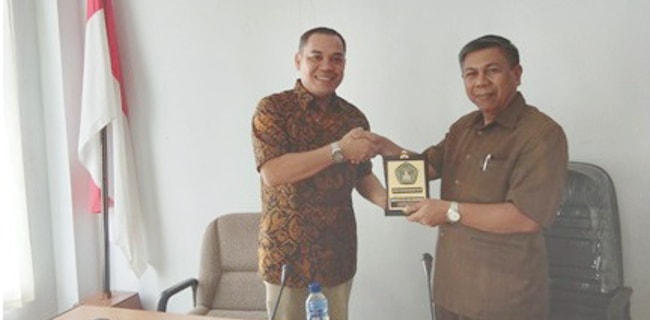 Program Studi Ilmu Komunikasi Fisip Unmul tengah disibukkan dengan penyusunan pengembangan kurikulum baru, yang direncanakan akan diterapkan pada tahun 2019 mendatang.
Program Studi Ilmu Komunikasi Fisip Unmul tengah disibukkan dengan penyusunan pengembangan kurikulum baru, yang direncanakan akan diterapkan pada tahun 2019 mendatang.  Dalam penyampaiannya, beliau memberikan gambaran bahwa dalam dunia pekerjaan, komunikasi dinilai sangat penting untuk dikuasai terutama kecakapan berkomunikasi seseorang dengan lawan bicaranya. “Semua bidang mempelajari yang namanya komunikasi. Salah satu hal penting yang memang sudah pasti harus dimiliki adalah kemampuan public speaking,” ungkap perwakilan Perusahaan Chevron Indonesia tersebut.
Dalam penyampaiannya, beliau memberikan gambaran bahwa dalam dunia pekerjaan, komunikasi dinilai sangat penting untuk dikuasai terutama kecakapan berkomunikasi seseorang dengan lawan bicaranya. “Semua bidang mempelajari yang namanya komunikasi. Salah satu hal penting yang memang sudah pasti harus dimiliki adalah kemampuan public speaking,” ungkap perwakilan Perusahaan Chevron Indonesia tersebut.















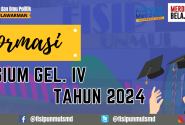
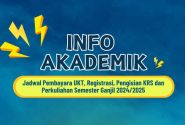
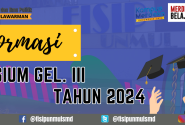
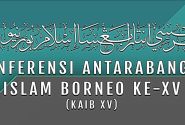
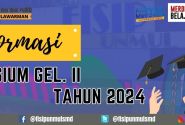
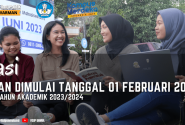
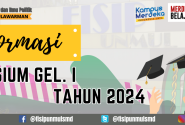
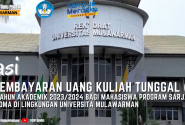


































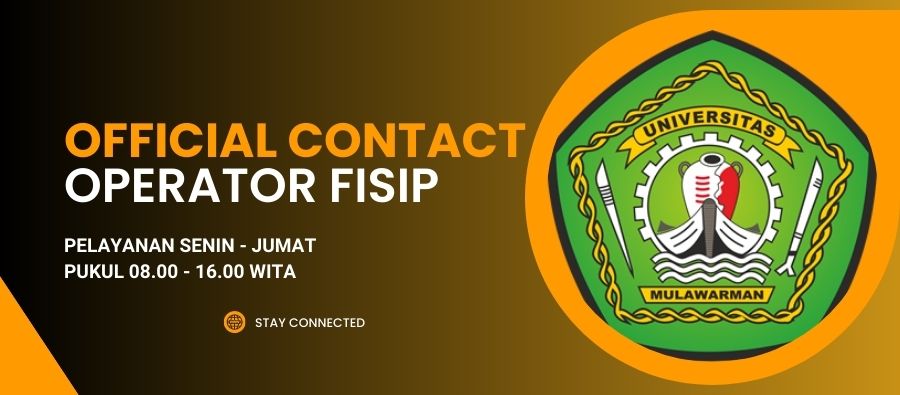
 Dalam rangka merayakan ulang tahun ke-14, Desa Songka Basketball menggelar sebuah turnamen basket. Pertandingan ini...
Dalam rangka merayakan ulang tahun ke-14, Desa Songka Basketball menggelar sebuah turnamen basket. Pertandingan ini...  Pendaftaran Pelaksanaan Sosialisasi Peningkatan Kompetensi Dosen dan Tendik Tahun 2021 melalui ...
Pendaftaran Pelaksanaan Sosialisasi Peningkatan Kompetensi Dosen dan Tendik Tahun 2021 melalui ...  No.
Nama Perusahaan
Posisi
Link Pendaftaran
1
PT Pelita Samudera Shipping Tbk
Graduate Development Program (GDP)...
No.
Nama Perusahaan
Posisi
Link Pendaftaran
1
PT Pelita Samudera Shipping Tbk
Graduate Development Program (GDP)... 


